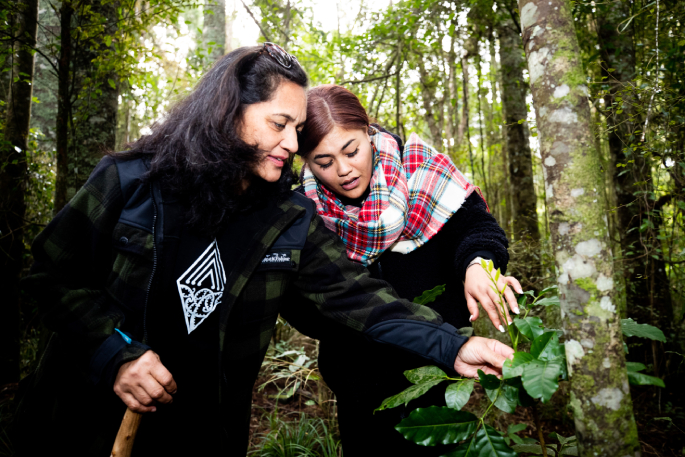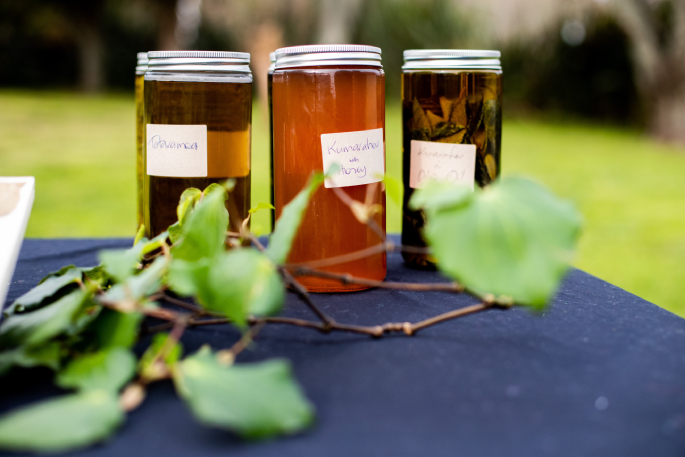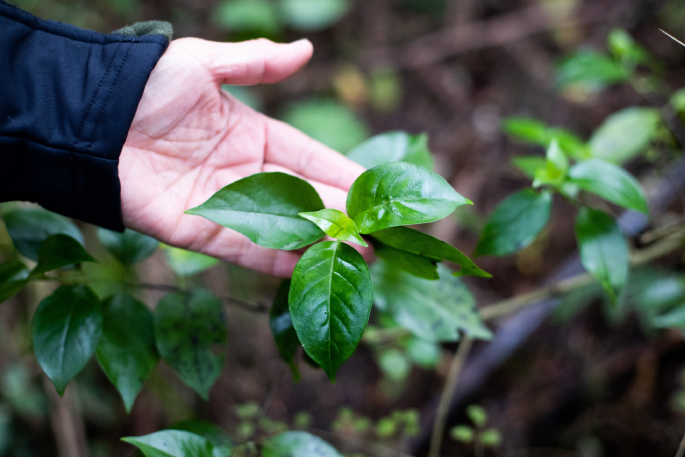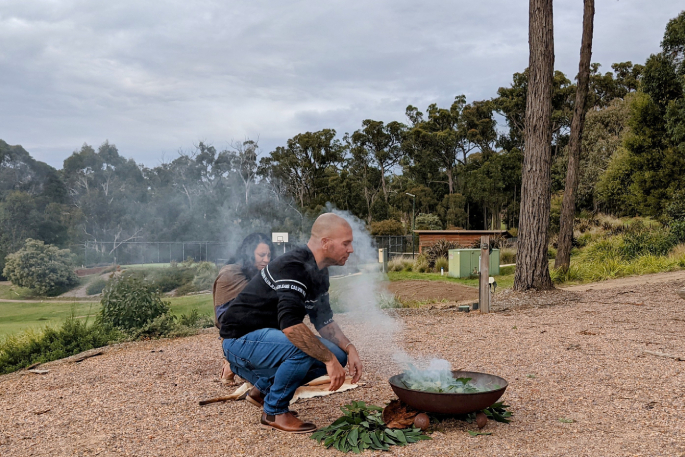When Australian Jeffrey Gray was invited to attend the inaugural Rongoā Māori Conference in Rotorua, he didn’t hesitate and bought his ticket straight away.
The Conference will be a celebration of traditional Māori healing and an opportunity for collaboration to support positive health outcomes for whānau and hapori Māori (Māori communities).
The two-day conference hosted by ACC will bring together rongoā Māori practitioners and health providers within te ao rongoā (the rongoā community) to whakawhanaunga (build relationships) and grow understanding of traditional Māori healing and its place in Aotearoa’s health sector.
Gray, who is the Aboriginal Engagement Lead – People, Spaces & Sustainability for Medibank, says it was a learning and engagement opportunity that he could not afford to miss.
 Photo supplied.
Photo supplied.
“ACC in New Zealand is doing something incredible in this space,” says Gray from his home in Melbourne.
“The attraction for us is to learn from people who are doing great things for indigenous health, beyond talking about it.”
Gray says that he and his colleagues have been having conversations about how Medibank can contribute to closing the gap towards Indigenous health equality but have struggled to take the next step.
“We are right at the start of our journey, whereas what is happening in New Zealand is advanced, so there is a lot of opportunity to learn.
“We are coming across to listen, soak up how this has been done and then in time we’d like to apply that to our context for Aboriginal communities across Australia.
“I need to be clear that I haven’t seen anyone else achieving what New Zealand is doing. The way you have embraced rongoā Māori as an option for not only Māori, but non-Māori as well, is a great example of investing in indigenous health and meeting the needs of their people.”
Rongoā Māori is traditional Māori healing. It includes mirimiri and romiromi (bodywork), whitiwhiti kōrero (support and advice) and karakia (prayer).
 Photo supplied.
Photo supplied.
ACC has been offering rongoā Māori as a healing option since June 2020 and the growth in that time has been significant.
ACC data shows rongoā Māori claim volumes doubled in the 12 months to March 2024. And it’s not just Māori who are accessing rongoā Māori services – 59 per cent of kiritaki (clients) accessing rongoā Māori are Māori while 41 per cent are non-Māori.
Gray says the number of people accessing rongoā Māori healing in New Zealand is incredible. He says it shows the need to meet the indigenous populations and work collaboratively.
Gray, a proud Aboriginal man has seen firsthand the inequities faced by indigenous families when it comes to accessing healthcare in Australia.
“I've been impacted personally through my own health concerns and my family's health concerns. For me, it's important, also in the sense of doing something that leaves a legacy for our community to build upon.”
In 2021, a national agreement on ‘Closing the Gap’ was developed in genuine partnership between Australian Governments and Aboriginal and Torres Strait Islander peak organisations.
The agreement sets out new Closing the Gap Priority Reforms and targets to change the way governments work to improve life outcomes experienced by Indigenous Australians.
ACC data shows Māori are 35 per cent less likely to make a claim compared to non-Māori. When they do lodge a claim, Māori are almost twice as likely to have a serious injury or sensitive claim.
Gray says it is a similar situation across the ditch with indigenous people on the wrong side of the health statistics.
“We get told that Aboriginal people just need to fit into the health services that are there. Like they are available and that's what they get, but it is clear that is not working so we need to change.”
 Photo supplied.
Photo supplied.
Gray wants to see more action and he is sure the learnings he and his colleague will take from Rotorua will be invaluable.
“For us, our time at the conference is really honing in on the connection of listening. We want to ensure that we're present there without huge distraction. And we're able to hear people's stories.
“Stories, is what connects us all in culture and we want to hear these stories so we can come home and change the face of how we engage in health in the future.”
Eldon Paea, Head of Māori Health Partnerships for ACC, is looking forward to the event in Rotorua, which will begin with a pōhiri at Tamatekapua marae, hosted by mana whenua, Ngāti Whakaue on Tuesday 21 May.
“We are looking forward to bringing together our health providers and rongoā practitioners to share, learn and see how we can work together to meet all the needs of our communities,” he says.
“The conference is for anyone who has an interest in traditional Māori healing, mātauranga Māori (Māori knowledge), hauora Māori (Māori health) and indigenous health.”
Paea says offering rongoā as a rehabilitation service is part of ACC’s continuing efforts to deliver equity for Māori.
“It presents injured Māori, and all New Zealanders, with more choice in their recovery options, and is a positive step towards delivering equity for tangata whenua.”
Rongoā Māori Conference
22 – 23 May Energy Events Centre, Rotorua More information is available on the Rongoā Māori Conference website. Rongoā Māori Conference 2024



0 comments
Leave a Comment
You must be logged in to make a comment.